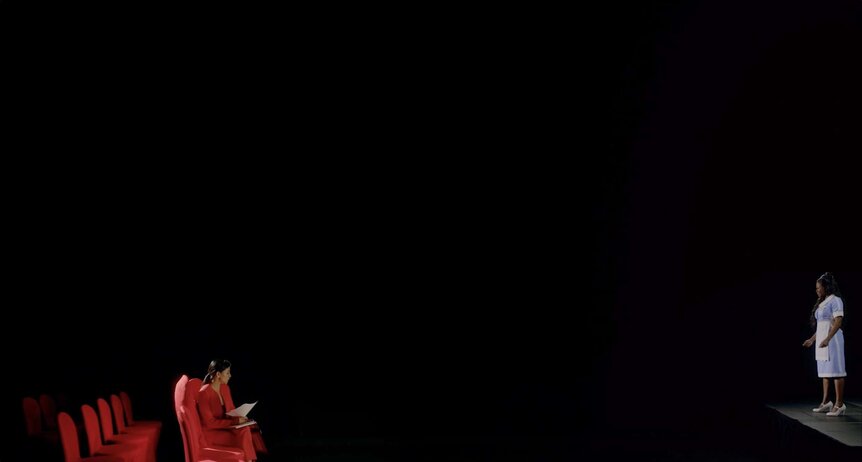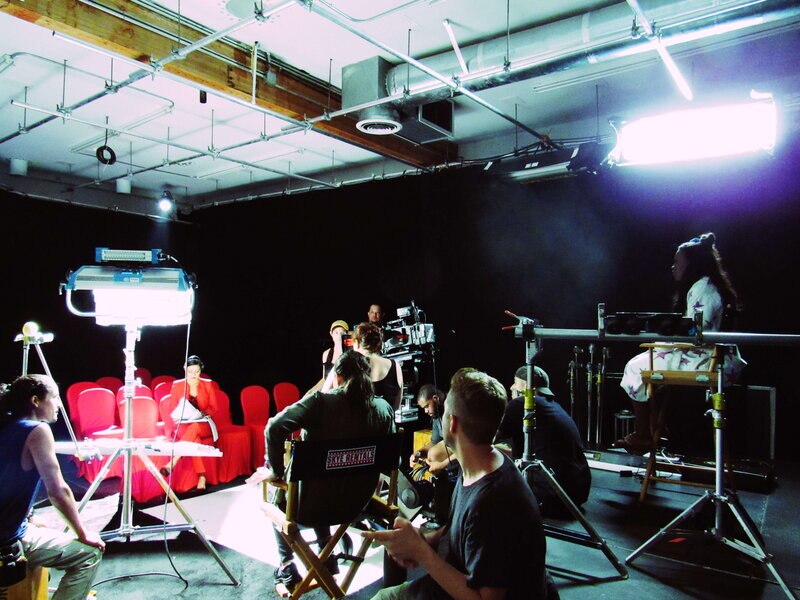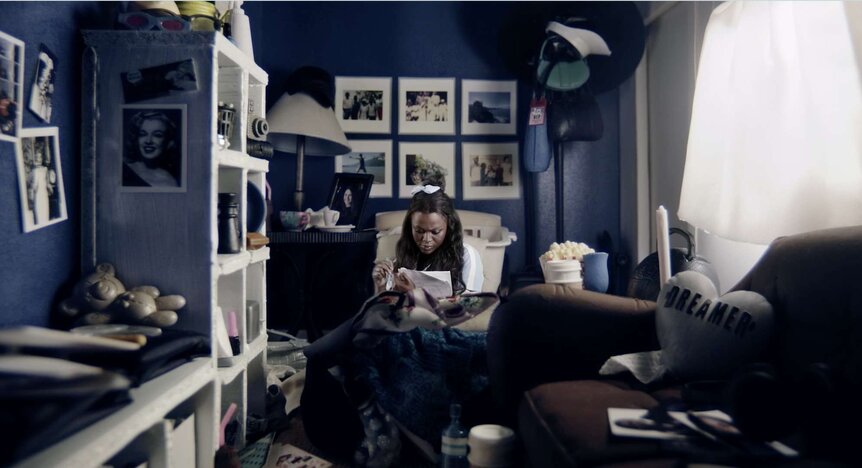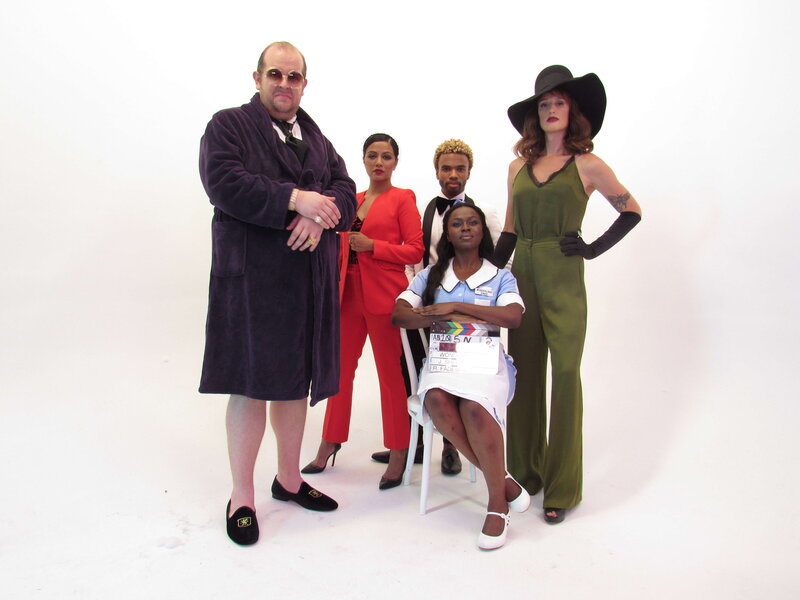Create a free profile to get unlimited access to exclusive videos, sweepstakes, and more!
In Hollywoodland speaks an authentic, encouraging truth
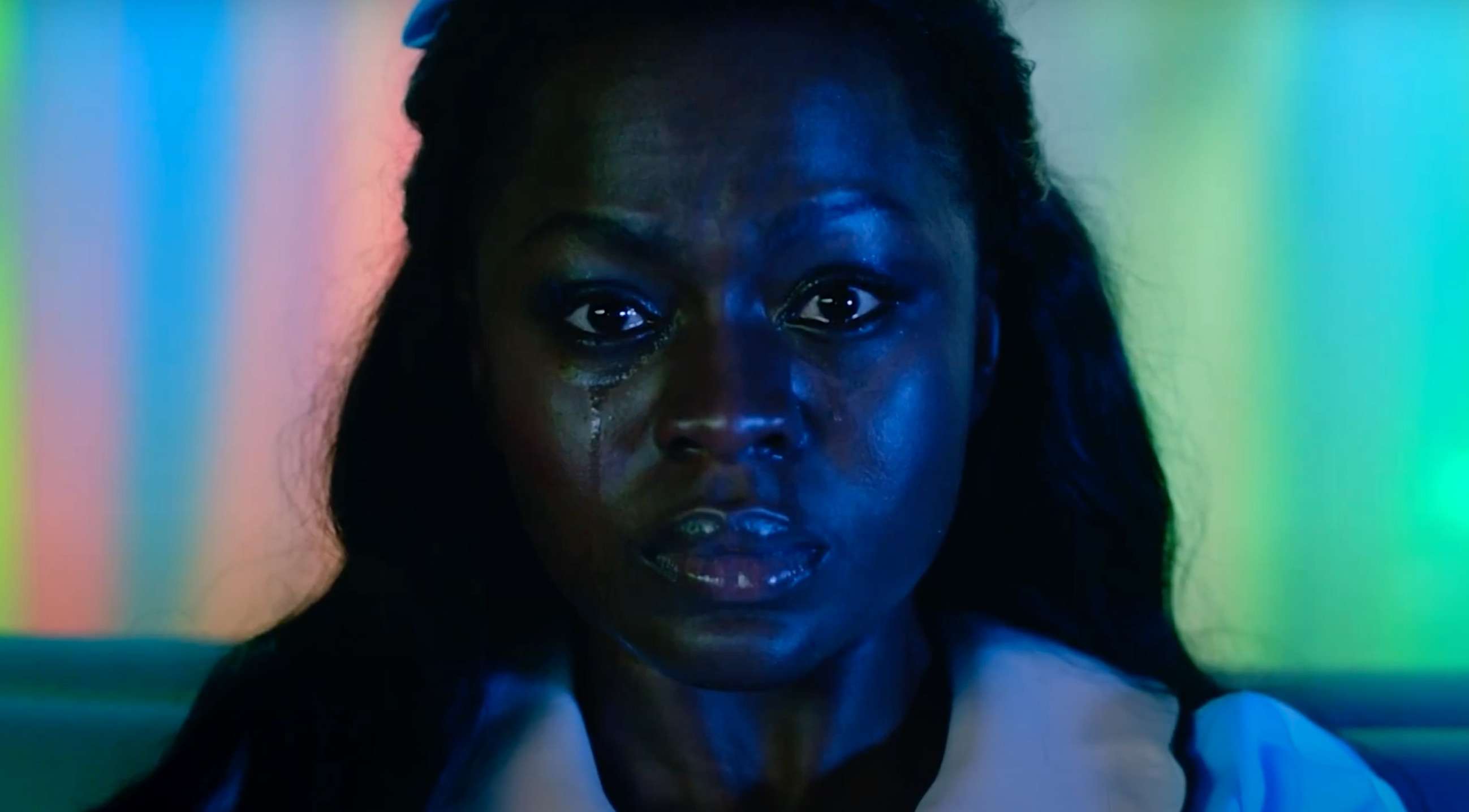
We all have unique journeys in life that help shape and mold us; experiences that impact how we interact with the world, how we navigate it. There are times when those moments overlap with others, and we find camaraderie in the ups and downs felt along the way. When these shared experiences bring us together creatively, it can resonate in ways that inspire others to find value in their own journeys — maybe even empowering them to tell their own stories. The short film In Hollywoodland is what happens when passionate people come together to tell a story that, as absurd as it is, is familiar to those who have ever felt othered in some way.
In Hollywoodland was produced by three people whose career paths were different, but share some significant commonalities. Writer and star Yetide Badaki, director Jessica Sherif, and actress/producer Karen David are all women of color who had to find their way in the real Hollywoodland. I had the pleasure of interviewing them and getting a better understanding of how they came together for the project.
Badaki wrote In Hollywoodland while working as an apartment manager in LA. She was very good at it, but she remembers thinking, "I hadn't come to L.A. to be an apartment manager. There were a lot of frustrations apart from that realization, that I have veered so far from the path, it was because a lot of it was just trying to survive. The difficulty of getting hired, being this Black woman, in trying to navigate in this world. I'm not seeing as many opportunities as some of my counterparts. Not seeing where I fit. And then also seeing and hearing experiences of people who had been othered, and pulling from those moments, walking into different spaces. It became this whole perfect storm. I needed to write. I needed to let some words out."
While Badaki may best be known to audiences as the goddess Bilquis on American Gods, she is still very much human, and those frustrations at that time in her life were real and powerful. But perhaps an even bigger, more cosmic-level storm had been brewing to bring these three women together.
Sherif had a love of movies from a very young age. She didn't grow up near any significant film hubs, but that didn't stop her from getting together with friends to make their versions of Dawson's Creek, recreating storylines while recording over family videos. But the lack of seeing women in director positions affected her deeply.
"It never crossed my mind that directing was even a possibility or that's even what I was doing," Sherif says. "So I went into journalism. I was like, 'Oh, this is a different way of [engaging with film and TV]. Because I don't have a place in the narrative.'"
It wasn't until she saw other women who looked like her sitting in the director's chair that she felt like the light had finally turned green for her to pursue the passion she had since childhood. For marginalized people, so much energy is devoted to justifying your existence in spaces. To see yourself as the default holds major significance, providing something like a blessing to go forth and be great.
For David, she knew from a young age that she wanted to act. She'd watched movies like Grease and Xanadu and knew she wanted to be part of the film and TV world. "And my parents not being typically conservative, like the typical South Asian family, they didn't say I'm crazy," she tells me. "They just kind of spoke to me very matter of factly. They said, 'Well, that's wonderful that you have these dreams.' They knew that the passion was in me, but rather than deterring me from that, they just encouraged me."
With her parents' blessing, David set out to make her mark in the entertainment world. She also had to deal with her share of ups and downs while navigating this space as a woman of color. She found success on shows like Galavant and Once Upon a Time, and eventually realized she wanted to get involved in the production side of filmmaking. She was where she needed to be in the moment when she joined Badaki and Sherif to bring In Hollywoodland to life.
This is what I mean by a bigger perfect storm brewing in the background to eventually bring these women together. It's through their journeys that created the foundation for In Hollywoodland to become this fully actualized film that resonates — not only with women of color but to anyone who, like Sherif, felt they "didn't have a place in the narrative."
Badaki stars as Zodwa, an actress who finds herself in an Alice in Wonderland-inspired Hollywood. The absurdity found throughout Wonderland not only fits Hollywood but other industries that foster environments that make it possible to be othered. These environments often don't encourage embracing who you are and honoring your life's journey and the unique perspective of personal experience. The short opens with Zodwa being told by Agent Rabbit (Luke Youngblood) that she's late and that her name isn't relatable enough. Less than a minute in, it's already relatable for marginalized communities. We aren't late for lack of trying but due to the detours and obstacles we encounter on the way. And even when we finally arrive, we're expected to scrub away everything that makes us who we are to fit into these boxes that will make us more palatable to the majority.
In Hollywoodland presents the world we live in and what it looks like to those of us who have had to regularly deal with bizarre and downright nightmarish situations just so that we can have a seat at the table. The relevance of everything touched on — verbal abuse from people in the position of power, unwanted sexual advances, being punished for standing up for yourself — speaks volumes to how far we have to go and how these difficult conversations are still needed. However, even as In Hollywoodland reconciles with the ugliness of these spaces, it also dares us to find the courage to fight for a better world. The film ends as strongly as it begins, Zodwa saying "Enough" in a voice that is both fed up and inspired at the same time, turning over the script in her hand and beginning to write her own story. It's the quiet power in this final moment that brings me back to the three women who came together to put such a passionate message out into the world — a reminder for those of us who need that encouragement, that our stories matter.
When I asked how they felt their creation impacted them personally, their answers were just as awe-inspiring. For Sherif, having partners who fully accepted her for who she was, encouraging her to be her authentic self cemented the idea that her work is inextricably tied to who she is as a person, that her voice is one that deserves to be put out into the world unapologetically. David found a greater appreciation for the filmmaking process, and the desire to continue to put on that producer hat again. For Badaki, there was the reaffirmation of resilience, and the experience of seeing what she'd written on the screen, knowing people connected to her work — things that encouraged her to continue to grow.
That sense of empowerment and passion, from the creators to the crew, is why the film resonated so strongly with me and for others who have had the opportunity to experience it. In Hollywoodland permits us to reconcile with the world we know and provide the loving push to create the world we desire.
In Hollywoodland had its premiere at the Bentonville Film Festival this month. Find out more at the film's Indiegogo page.
